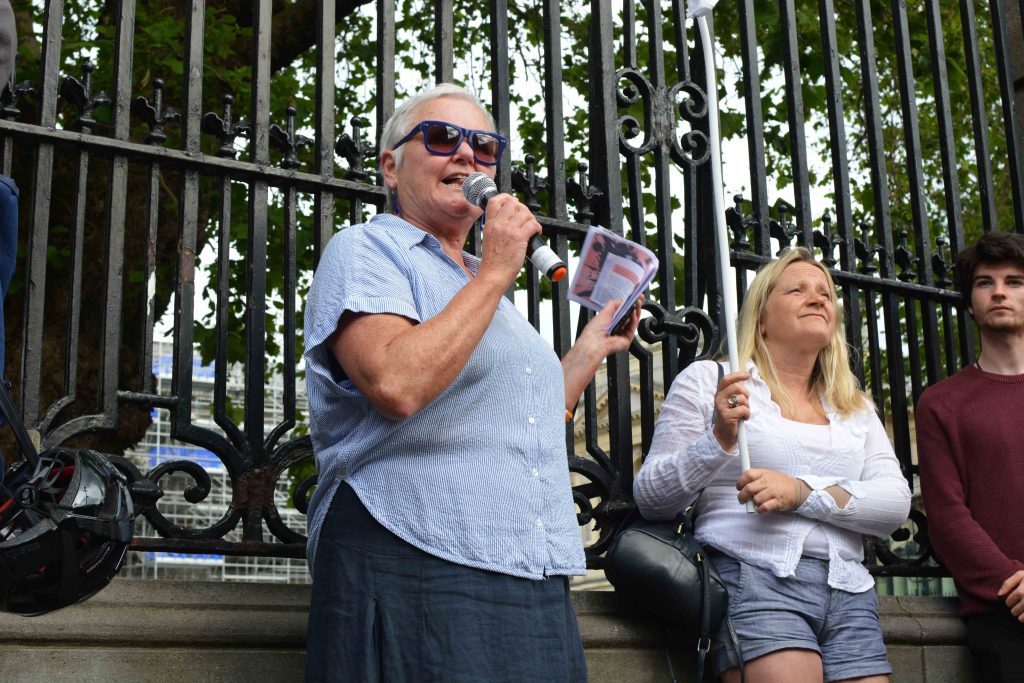A closer look: alternative budgets & climate

11 October 2021
As always, the Budget is set to be a Big News Day the country-over. It’s pivotal for every Department across the board, and it will have big implications for how the State takes on the climate and biodiversity crisis.
We’ll be following it live and doing a deep dive afterwards – but before we get to the actual National Budget, we wanted to take a look at some of the alternative financial roadmaps the opposition has put out.
(quick note before we get started: for any of us that aren’t familiar with the term – an alternative budget is something opposition parties put forward as a way to demonstrate how they would allocate the state’s resources if they were in Government).
Sinn Fein
In their alternative budget, Sinn Fein open with saying the climate crisis is one of their key priorities, as well as “protecting communities from the impact of flooding and coastal erosion”.
Throughout their budgetary proposals they also refer to wanting to make a transition to a low carbon economy affordable and accessible.
The largest opposition party has staked a large part of their climate strategy on housing – particularly on ensuring public housing is built to a high energy standard and to up the funding for the retrofitting of local authority homes.
On Ireland’s two largest emitting sectors – transport and agriculture – the focus is strongly placed on expanding available supports.
Free public transport for those under 18 over two budgets was suggested, as well as increased grants available to those on a lower income.
Expanding agri-environmental schemes was also put forward as a policy measure, as well as establishing a new Just Transition Commission and increasing the Just Transition Fund.
On the biodiversity crisis front, Sinn Fein have proposed enhancing NPWS funding so that it has “the resources to make a real impact”.
Allocating an extra €5 million to the NPWS, as laid out in their proposal, however is just a “tiny fraction of what’s needed” according to Irish Wildlife Trust Campaigns Officer Padraic Fogarty.
The Social Democrats
One of the key cornerstones of the Social Democrats alternative budget when it comes to climate is a Green Transformation Fund.
In their own words, the fund would “direct significant investment aimed at transforming Ireland’s economy and putting us on the road to carbon neutrality”.
Key tenets of the fund include the ramping up of off-shore wind and solar energy, decarbonising and expanding public transport and achieving national retrofitting targets.
Specific measures in their proposal include the roll-out of the Circular Economy Strategy, increased funding for the NPWS and the National Biodiversity Data Centre, as well as allocating funding to local authorities to employ biodiversity officers.
Unsurprisingly, the party also put forward a data centre moratorium until a cost/benefit analysis is done on their growing presence in Ireland. Their Wicklow TD Jennifer Whitmore put forward a motion to do just that late last month.
A national front-loaded “pay-as-you-save” retrofitting programme which would allow people to insulate their homes and pay as they save on their energy bills was also put forward, as well as the ringfencing of 3 million to support pilot community energy projects.
On the land use front, extended afforestation grants for native tree species and significant increased funding to organic farming were both proposed.
References to Just Transition repeatedly cropped up in the document, which is also in line with party policy as Deputy Whitmore has tabled a Just Transition Bill before the Dáil.
Labour
Labour similarly mentioned retrofitting and public transport in their proposal, noting that they both were critical in driving a Just Transition.
Specifically, they pledged to roll-out a national retrofitting programme and to provide free public transport for children and adults.
Other public transport measures include expanding bike schemes and for increased funding for rural link services.
They also proposed doubling the Just Transition Fund to fund over 60 projects, to set up 38 new stations for the Environmental Protection Agency’s real time air quality monitoring network and to also increase NPWS funding.
In order to address the rising cost of living, the party is calling for a Carbon Tax Credit to be introduced and for it to be “targeted at ordinary working families in poorly insulated homes”.
Combining the credit with targeted increases in the fuel allowance and social welfare payments would be a way to “address the rising cost of living for those at risk of fuel poverty,” the party added.

People Before Profit
And last but certainly not least – People Before Profit had multiple climate measures in the alternative budget, many of which focused on taxing big polluters.
The party says it would levy a pollution tax on profits of €500 million on major polluting industries “including agricultural corporations” and channel those ring-fenced funds to small to medium-sized farmers who sequester carbon and other such Just Transition measures.
They also proposed nationalising major agricultural companies that “have made farming unsustainable for tens of thousands of families” and increased emissions regardless of the consequences.
Construction of data centres would immediately cease according to their budget, and the Government should impose a considerable pollution levy on the corporations in ownership of the data centres “at the minimum”.
Also in the field of taxation, People Before Profit proposed introducing a tax on commercial air fuel and stressed that the action should be accompanied by legal action to prevent companies passing on the increase to their customers.
On the investment front, the party advocated for massive increases in funding to renewable energy to the tune of €1000 million, as well as enough financial backing to retrofit 50,000 homes a year in order to bolster energy efficiency.
Curious to know what the actual budget will look like? Stick with us tomorrow and we’ll have you covered.
[x_author title=”About the Author”]







